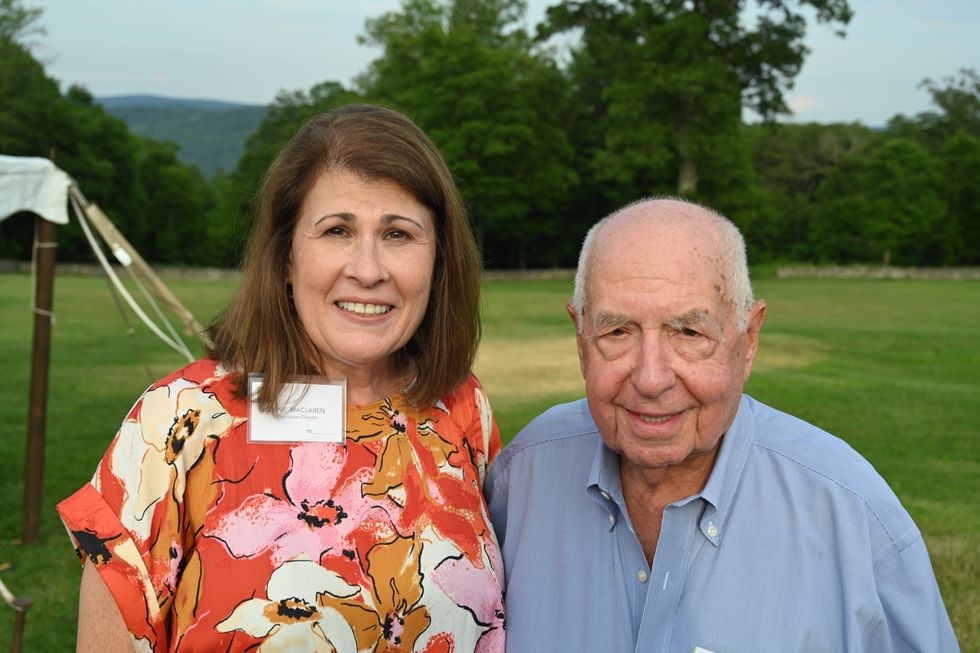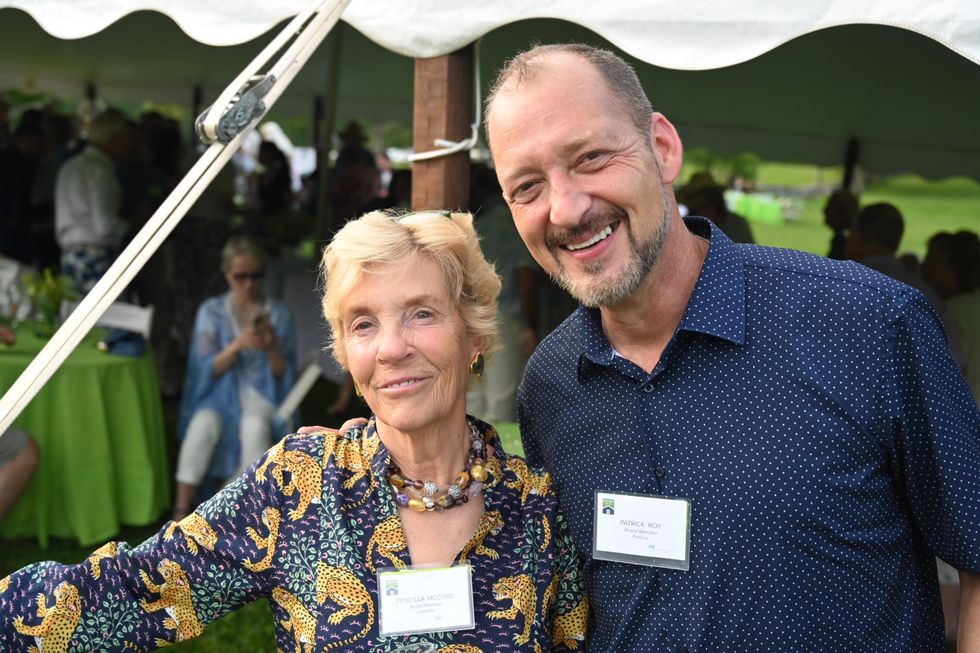Latest News
Joseph Robert Meehan
Jun 25, 2025
SALISBURY — Joseph Robert Meehan the 2nd,photographer, college professor and nearly 50 year resident of Salisbury, passed away peacefully at Noble Horizon on June 17, 2025. He was 83.
He was the son of Joseph Meehan the 1st and his mother, Anna Burawa of Levittown, New York, and sister Joanne, of Montgomery, New York.
He is predeceased by his wife, Elsie Lynn Meehan who passed away in November of 2023.
He leaves behind a son, Joseph Cortese, of Upton Massachusetts, his wife Mary and grandchildren, Michaela (Cortese)Donabedian, her husband Sevag and his great grandson, Ari, of Hopkinton, Massachusetts.
His grandson, Joseph Cortese, of Barrington, Rhode Island, and his granddaughter, Jaclyn Cortese of Tamworth, New Hampshire.
He also leaves behind his daughter, Kathleen Cortese Zito and husband Dominic, their three children, Michael, Alessandra, and Mathew Zito of Broomall, Pennsylvania.
After teachingpsychology at Dutchess Community College in Poughkeepsie, starting in 1968, his40-year career in photography started in the mid to late 70’s and has included assignment work for a wide variety of commercial and editorial publications. Over a thousand of his photographs have appeared in newspapers, books, magazines and on web sites for clients such as Nikon, and Hasselblad cameras, SanDisk memory cards, Tiffen Filters, Fujifilm, Eastman Kodak, the U.S. Army, National Geographic, the Smithsonian Museum and the U.S. Department of the Interior.
His work ranged from the beauty of the Salisbury areato an expedition photographer for arctic animal studies in the high Canadian Arctic, photographing Inuit hunters in Northern Greenland to landscape work in other extreme locals such as Death Valley, California.
Portfolios of his work have featured in such magazines as Outdoor Photographer, Shutterbug, Rangefinder and Popular Photography and his style has been characterized by the New York Times as “…alive with color and sparkling with light.”
He also served as the technical editor of Photo District News for over a decade, writing about new technologies and products and was the former editor of the Photography Yearbook. He has authored over 20 books on photographic technique many of which have received “best book” awards and have been translated into several languages.
Born in New York City, he was a 1959 graduate of Levittown High School, Levittown, New York.
He received his baccalaureate degree with honors from Columbia and a Master of Arts degree from Manhattan College. He has taught photography on the college level in the U.S., England and at the National Academy of Arts in Taiwan and gave workshops at the Palm Beach Photographic Centre in West Palm Beach, Florida.
His eye always saw the beauty of the Salisbury area through alens and he captured those images in an area that he and his wife Lynn loved.
When they were not on/in and around the lake, he and Lynn didn’t miss any of their grandchildren’s big events.Joe took great pride in photographing all these memorable events.
His beautiful images will always be here for all to appreciate.
Funeral services are under the direction of Newkirk-Palmer funeral home and a graveside service will be held this Friday, June 27, 2025, at 11 a.m. at St. Mary’s Cemetery, 18 Cobble Road, Salisbury, Connecticut.
Keep ReadingShow less
Florence Olive Zutter Murphy
Jun 25, 2025
STANFORDVILLE, New York — It is with profound sadness that we announce the passing of Florence Olive Zutter Murphy, who went home to be with the Lord on June 16, 2025, at the age of 99.
She was born in Sharon, Connecticut on Nov. 20, 1925, and was a long time resident of the Dutchess County area.
She was a devoted mother, loving wife to James Francis Murphy, who passed on Oct. 11, 1971, and a dear friend to many.
Florence, who was also known as Flo, managed a dairy farm for many years on Carpenter Hill Road in Pine Plains, New York. She is remembered for her delicious home cooked meals.
After raising her children she became an avid square dancer, racketball and tennis player. She then discovered her love for bike riding. She enjoyed embarking on bike tours well into her mid 80’s. When Flo wasn’t out riding her bike she could be found taking care of her property. She loved gardening, clearing the woods and building rock walls one stone at a time.
Florence was an amazing woman of great integrity, strength and tenacity. She was adored, respected and greatly loved by her family and those who knew her.
Florence is survived by her seven children — Bonnie June Chase, James Albert Murphy, Donna Sue Strauss, Jackie Lynn Merwin Disher, Glenn William Murphy, Lori Lee Mora and Clint Evan Murphy as well as 16 grand children and 20 great grand children.
She will always be remembered and greatly missed.
The Kenny Funeral Home has care of arrangements.
Keep ReadingShow less
Chore Service hosted 250 supporters at it’s annual Garden Party fundraiser.
Bob Ellwood
On Saturday, June 21, Mort Klaus, longtime Sharon resident, hosted 250 enthusiastic supporters of Northwest Corner’s beloved nonprofit, Chore Service at his stunning 175-acre property. Chore Service provides essential non-medical support to help older adults and those with disabilities maintain their independence and quality of life in their own homes.
Jane MacLaren, Executive Director, and Dolores Perotti, Board President, personally welcomed arriving attendees. The well-stocked bar and enticing hors d’oeuvres table were popular destinations as the crowd waited for the afternoon’s presentations.

The Garden Party is Chore Service’s only major fundraising event of the year, so it was not only a wonderful social activity, but a vital support mechanism to keep our most vulnerable residents in their homes.
First to present was MacLaren, who underlined the organization’s mission, thanked all caregivers for their important work, and said, with gratitude, to all donors, “Our accomplishments are your accomplishments.”
Ellen Ebbs, a Litchfield resident and Chore client, delivered a powerful and deeply personal testimony, sharing how the organization’s services transformed her life after a serious fall left her “disabled, dependent, and depressed.” Her story resonated with the audience and highlighted the vital impact of Chore’s work.

Patrick Roy, high-energy incoming Chair of the Board, as well as First Selectman of Roxbury and Chief of its police force, told the crowd of his “Fragile List” — those in the community a step away from losing their independence, and how he ensured that this group was adequately taken care of. Priscillia McCord, outgoing Board Chair after twelve years of unstinting service, asked for donations for Fund the Cause, urgently needed to support the recently-expanded transportation services before funding runs out in September. As Patrick Roy said, “In rural towns like ours, our clients depend on us for basic services — to get to their medical appointments, go grocery shopping, as well as life-enhancing activities like going to the library and getting a weekly lift to visit family and friends.” Both Roy and McCord emphasized the area of greatest current concern — that of an upcoming decrease in federal funding, something we will learn more about in August.
Chore Service supports the towns of Cornwall, Falls Village, Goshen, Kent, Litchfield, Morris, Norfolk, North Canaan, Roxbury, Salisbury/Lakeville, Sharon, Warren, and Washington.
For those interested in accessing services or providing them, please contact Chore Service at (860) 435-9177. To learn more about the organization or to donate, go to www.choreservice.org.
Sally Haver has lived in the Berkshires, on and off, since the mid-’70’s and her horse lives in Amenia.
Keep ReadingShow less
Bach and beyond
Jun 25, 2025
The Berkshire Bach Society (BBS) of Stockbridge will present a concert by cellist Dane Johansen on June 28 at St. Paul’s Episcopal Church.
Provided
The mission statement of the Berkshire Bach Society (BBS) reads: “Our mission is to preserve the cultural legacy of Baroque music for current and future audiences — local, national, and international — by presenting the music of J.S. Bach, his Baroque predecessors, contemporaries, and followers performed by world-class musicians.”
Its mission will once again be fulfilled by presenting a concert featuring Dane Johansen on June 28 at St. Paul’s Episcopal Church at 29 Main Street, in Stockbridge, Massachusetts.
Terrill McDade, Executive Director of BBS, said, “Dane is a supremely talented musician and a musical poet. Audiences will hear his cello speak in three different musical dialects: those of Bach, Gaspar Cassadó, and Benjamin Britten. They will experience and be able to find the idiom that means the most to them. The music is classical, contemporary, and modern. It is contemplative, energetic, lyrical, rhythmic, and, in the end, philosophical. The audience is in for that rare musical treat of an intimate recital of profound music interpreted by a solo player who gives them something to think about —whether consciously or sub-consciously.”
McDade added, “Berkshire Bach believes it is very important to present live performances of a variety of Baroque music throughout the season, especially in this time in our society. Music has restorative power, and when played by fine musicians, can provide moments of respite and reflection that do us good.”
Johansen’s recital on June 28 is a case in point. The sound of the cello — so close to that of the human voice —makes us feel better somehow — refreshed in our spirit, hopeful, better able to carry on in difficult times,” said McDade.
Johansen grew up in Fairbanks, Alaska. He graduated from Juilliard and is a member of the Cleveland Orchestra, which he joined in 2016. He has performed all over the world as a soloist, chamber, and orchestral musician. He was a member of the Escher String Quartet and a BBC Radio 3 New Generation Artist.
The concert will conclude Berkshire Bach’s thirty-fifth season, which opened with the film “Strangers on the Earth,” also featuring Johansen as he walked the Camino de Santiago — the ancient 600-mile pilgrimage route extending through France and Spain — with his cello strapped to his back in 2014. He stopped in towns along the way and played the six Bach Cello Suites in local churches.
The concert will begin at 5pm. Tickets are available at: www.bershirebach.org/events.
Keep ReadingShow less
loading







